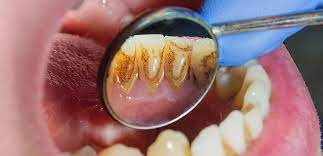
Periodontal Pockets: Why Do You Have Them and How to Prevent Them from Developing in Dieppe, NB
Gum pockets can be dangerous for your oral health as they indicate the development of gum disease. If you have these pockets, you need to act quickly to prevent further issues from occurring. Thankfully, a gum specialist in Dieppe, NB, can provide you with appropriate periodontal treatment to reverse the damage, get rid of the pockets, and keep your gums healthy.
What are Periodontal Pockets?
When mouth bacteria sit on the teeth for a long time, they turn into plaque. Eventually, plaque can become tartar. Regardless of your diligence in brushing or flossing your teeth, tartar cannot be removed from your teeth. Unfortunately, tartar offers a base for additional bacteria to attach themselves, triggering more gum swelling and inflammation. This inflammation can lead to gum disease. Also, gum disease and inflammation can cause your gum tissue to pull away from your teeth. When this happens, periodontal pockets are made. These pockets become breeding grounds for more bacteria that cause bone decay when left untreated.
How Periodontal Pockets Are Addressed
Treatment for periodontal pockets depends on how serious they are. Your dentist may prescribe topical or oral antibiotics for them. If you have many of these pockets, you may need to undergo scaling and root planing treatment to get rid of tartar from your teeth, hoping that your gums will tighten up after the procedure. In more serious cases, you may require surgical treatment to close the periodontal pockets.
How to Prevent Periodontal Pockets from Developing
Usually, it is better to prevent the development of periodontal pockets than treat them. Fortunately, you can keep your gums healthy and avoid having periodontal pockets by taking the steps below:
- Maintain a good oral healthcare routine. This includes brushing and flossing your teeth two times every day and using a mouthwash at least once. Make sure you use a toothbrush with soft bristles. When you brush your teeth, make sure to brush along your gum lines to avoid irritating the gum tissues.
- Watch what you eat. Did you know that what you eat can affect your oral health? Your gums need some nutrients to stay healthy. To maintain good health, consume foods rich in vitamin C, including fruits and vegetables. Also, make sure to limit or avoid eating too much sugary foods as they can increase bacterial activity in your mouth, triggering the development of many oral health issues.
- Stop smoking. Chewing or smoking tobacco can cause many health problems. It can increase the buildup of tartar and stress your gums.
